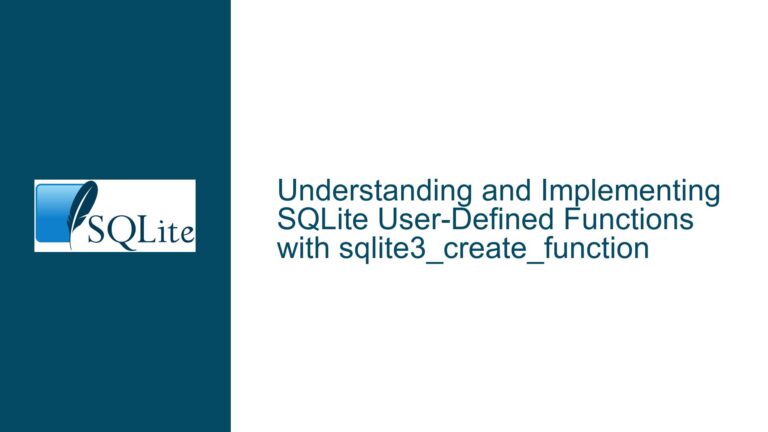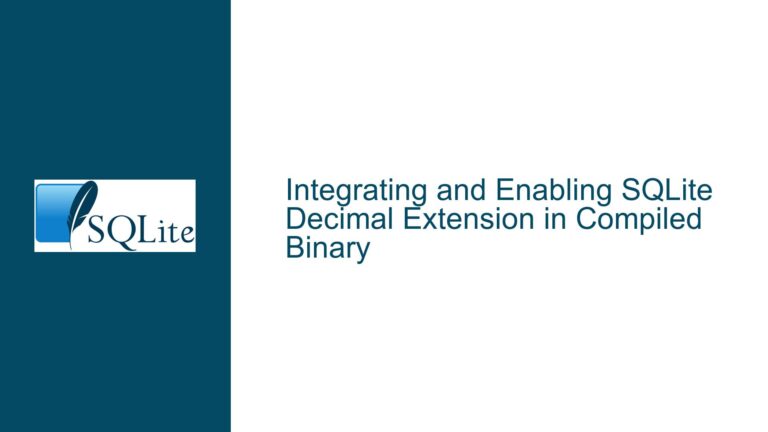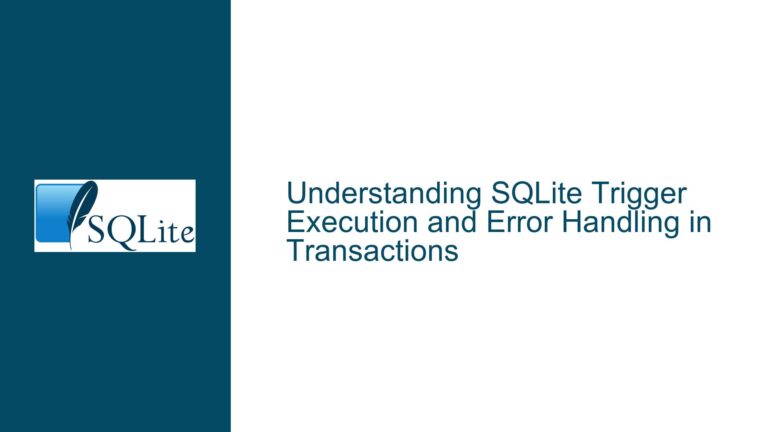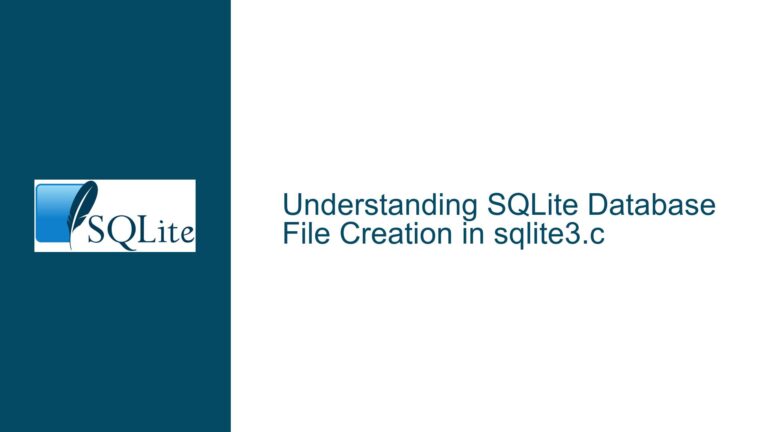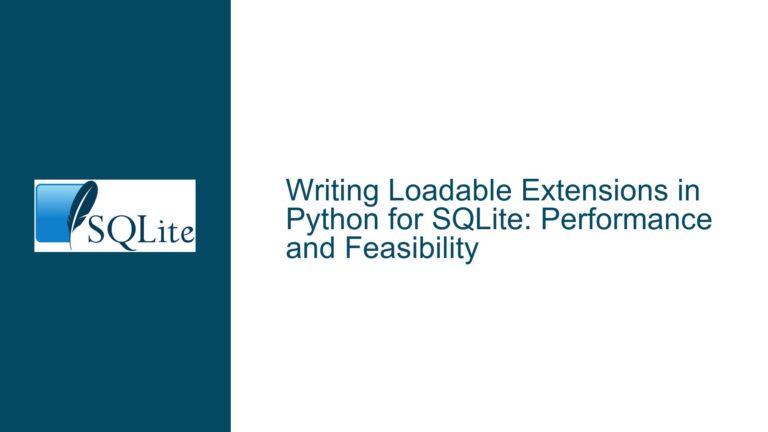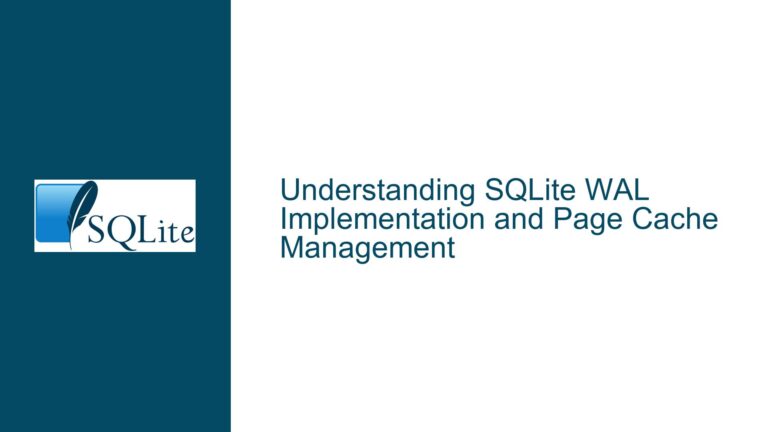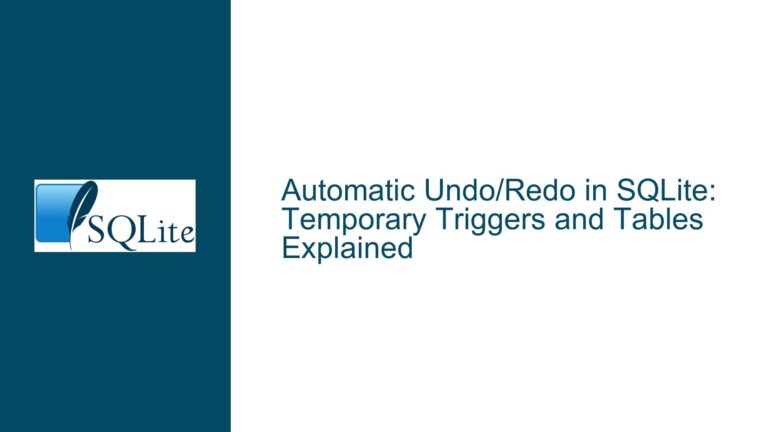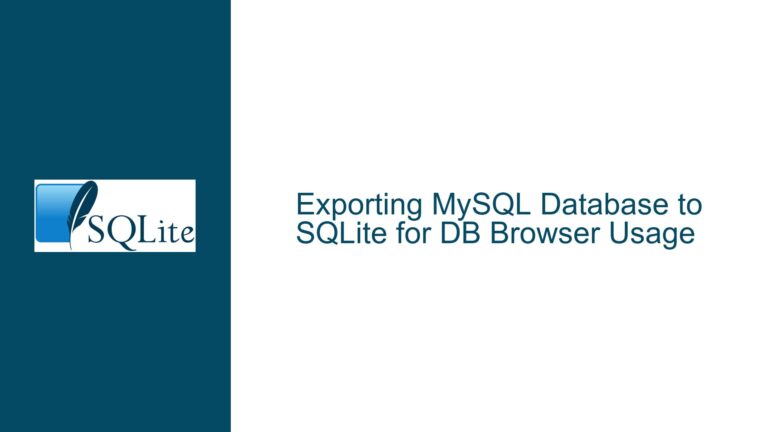and Implementing SQLite User-Defined Functions with sqlite3_create_function
Issue Overview: When to Use sqlite3_create_function vs. SQLite Extensions and How to Implement UDFs SQLite is a powerful, lightweight database engine that supports User-Defined Functions (UDFs) through the sqlite3_create_function API. UDFs allow developers to extend SQLite’s functionality by defining custom functions that can be used in SQL queries. However, the implementation and usage of UDFs…
